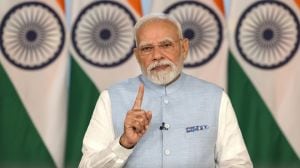When Golding Lorded Over Pune’s Very Own
Years ago when Pune was paradise, children would watch Disney cartoons at West End Theatre on Moledina Road, drink fountain soda and drop in...

Years ago when Pune was paradise, children would watch Disney cartoons at West End Theatre on Moledina Road, drink fountain soda and drop in at Manneys for their favourite comic before heading home. Now, West End is sandwiched between a hotel and a shopping centre. The business is not as it used to be, the multiplexes have taken care of that. Manneys has changed too — it is stationed in a new building — but it’s on the same road, still connecting with the bookworm, has been since 1948.
When I walked into Manneys, with Bangalore’s friendly Premier on my mind, I asked for the first thing that came to mind. Granta 84. “No, we don’t keep Grantas anymore.” Which quickly changed to “but we can get it for you”. So far so good. Since then, I have made many trips to browse the eclectic array, which includes a rare edition of Jaroslav Hasek’s The Good Soldier (Svejk and His Fortunes in the World War).
Once inside, there are shelves and tables of books, the new arrivals and bestsellers arranged in neat piles taking prime position. To the left is where the Classics/Fiction are, Calvino morphing into Kafka, whose diaries lead to Kazantzakis and Kundera; as you run your eyes through the shelves you are likely to find Faulkner and Fitzgerald, Mann and Mishima, Balzac, Dostoevsky and a sepia-tinged copy of Solzhenitsyn’s One Day in the Life of Ivan Denisovich.
And if in Pablo Neruda’s birth centenary year, you have an urge to read his Memoirs or Twenty Love Poems and a Song of Despair, they are on the way.
The classics section has shrunk, admits Manik Mani, who owns Manneys. But there are rows of books on poetry and Indian (English) literature and an ever-expanding children’s corner. In the age of global anxiety, the biggest draw is religion and Indian philosophy (“foreigners make a beeline for it”). And the technical section (management, finance, engineering) that Mani added when he quit an MNC job to join his father’s business in the ’70s.
Manneys has had its share of literati visitors (Dom Moraes, Khushwant Singh, Mulk Raj Anand), with the most distinguished being Nobel Laureate Sir William Golding. “He had especially dropped in at Manneys to see my father, V.G. Mani,” says Mani.
In the ’40s, V.G. Mani was the most well-known bookseller of Rawalpindi, owning a chain of 11 stores. He lost it all during Partition. Once in India, he tried building his business from scratch in Delhi and Bombay but Pune offered the best deal. And so it was that the city got Manneys like Bombay has its Strand, Delhi its Bookshop and Bangalore its Premier.
Photos



- 01
- 02
- 03
- 04
- 05



























